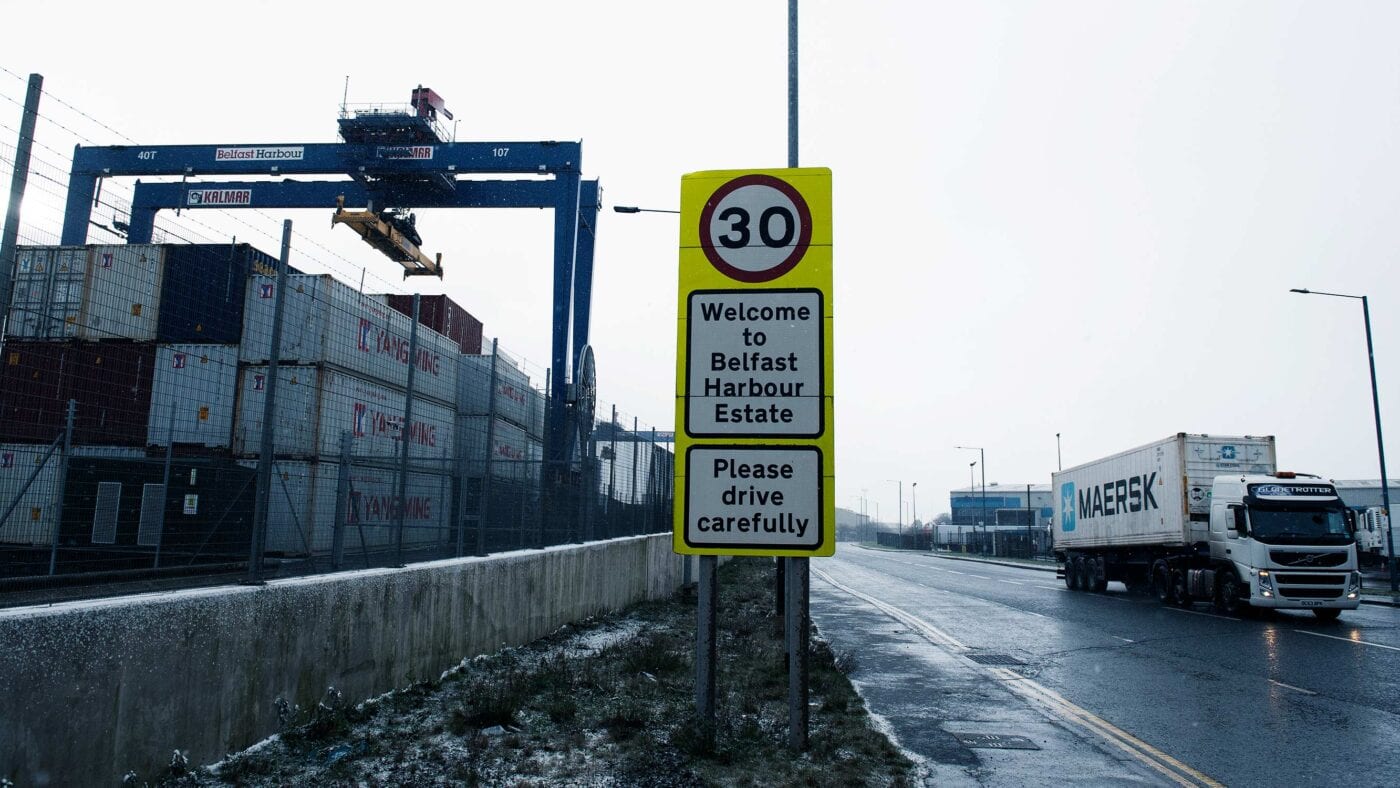Last week, the Government took the historic decision to trigger Section 35 of the Scotland Act for the first time and strike down Nicola Sturgeon’s controversial gender recognition bill. This example of ‘muscular unionism’ was hailed by Lord Frost, and other Tories, as an overdue assertion of the UK’s status as a unitary state.
In the Daily Telegraph, the former Cabinet Office Minister argued that the proposed gender laws showed that devolution had ‘gone too far’. Frost wrote that the bill was intended to highlight differences between Scotland and the rest of the country, rather than resolve legal questions around gender.
He was right, but it was still surprising that, rather than ignore Sturgeon’s gambit, Rishi Sunak chose to face down the separatists.
It was surprising for two reasons: first, because the PM is not renowned for any particular interest in the constitution; second because in a different arena, his promises to protect the UK’s integrity seem to be softening. The Government issued a powerful reminder that Westminster is sovereign, by using Section 35, but it is taking a very different approach to another challenge to the Union.
Indeed, in a recent court case, the Government’s lawyers argued specifically that the UK is ‘no longer a unitary state’ for the purposes of trade, because of the impact of the Northern Ireland Protocol. The Conservative administration is supposed to oppose the Irish Sea border, but it defended its legality robustly in the Supreme Court, undermining key pillars of the Union in the process.
Like his predecessor, Liz Truss, Sunak promised initially that he would fix the Protocol through legislation at Westminster if negotiations with the EU failed to produce a solution.
Through its recent briefings, though, the Government seemed to encourage a wave of speculation that a deal on the sea border was imminent. We heard that the ‘mood music’ between London and Brussels had improved, while Irish ministers were using less confrontational language about Britain and unionists.
None of that means that the EU has genuinely changed its stance on the key issues that affect Northern Ireland’s place in the UK.
There was a brief flurry of excitement earlier this month when Foreign Secretary James Cleverly and Brussels’ chief-negotiator Maros Sefcovic announced an agreement on data-sharing. This ‘breakthrough’, though, turned out to be effectively a technical concession that gave the EU access to British IT systems. The two sides conceded in their statement that they had yet to ‘scope the potential’ of this development to make the sea border less obtrusive.
There are few signs that the European Commission is prepared to resolve problems like extra paperwork, diverging regulations and the jurisdiction of Brussels’ law courts, that effectively removed the province from the UK internal market. The supply of medicines to Northern Ireland from the mainland is on the brink of being cut off, thanks to the requirements of the Irish Sea border, while Marks & Spencer described proposals for separate labelling on products for sale in NI as ‘unworkable’. In a moment of candour, last week, Northern Ireland Secretary Chris Heaton-Harris admitted that only a ‘tiny bit of progress’ had been made in the negotiations so far.
Despite this obvious lack of movement, figures within both the Government and the opposition at Westminster have encouraged the idea that the DUP can be pressured into endorsing any arrangement that Rishi Sunak reaches with the EU. During a speech at Queen’s University in Belfast, Keir Starmer effectively agreed to back a deal sight unseen. Meanwhile, the Tory chairman of the Northern Ireland Select Committee, Simon Hoare, implied that the Government could change power-sharing rules at Stormont if unionists refused to drop their opposition to the Protocol and restore the devolved executive.
There are persistent rumours that Sunak and Cleverly will reach an interim agreement with the EU that leaves the main constitutional issues unresolved, or force the DUP into accepting a deal that does not restore Northern Ireland’s full place within the UK. In the face of Brussels’ continued intransigence, that might seem like a pragmatic solution to the Prime Minister. But it is unlikely to stabilise politics in the province and it could open up fresh divisions in the Conservative Party.
This week, after the DUP leader met with the European Research Group of Tory backbenchers, an unnamed MP described the two groups’ position on concessions to the EU as ‘indistinguishable’. The Daily Mail even reported that Boris Johnson was ‘deeply concerned’ that his successor might grant the European Court of Justice a continuing role in Northern Ireland. As interventions go, that one was deeply ironic, but it showed how Sunak’s rivals in the Tory party could use controversy over the Protocol as a rallying point to oppose his leadership.
The main reason to show firmness with the EU, of course, is to protect the integrity of the ‘unitary’ nation state heralded last week by Conservatives and Unionists alike. If the Government is prepared to create a constitutional furore to defend the Union against the SNP, why is it not willing to risk confrontation with Brussels, in order to repair Northern Ireland’s place in the UK?
Click here to subscribe to our daily briefing – the best pieces from CapX and across the web.
CapX depends on the generosity of its readers. If you value what we do, please consider making a donation.


